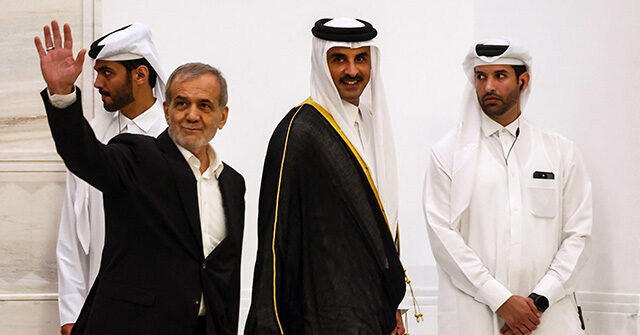Recent reports by Reuters highlight the growing unease among Gulf nations regarding the escalating conflict between Iran and Israel, particularly in light of potential threats to their oil facilities. Gulf states, including members of the Gulf Cooperation Council (GCC)—specifically Qatar, Bahrain, Kuwait, Oman, Saudi Arabia, and the United Arab Emirates (UAE)—are seeking to establish a dialogue with Iran amidst these tensions. Iranian President Masoud Pezeshkian attended meetings in Doha with Qatari officials, while the GCC aimed to create a platform for constructive discussions with Iranian leaders. Concerns regarding the possible spillover of conflict into their territories have prompted Gulf nations to reassure Iran of their neutrality.
The backdrop of these discussions is the ongoing conflict that erupted on October 7, 2023, when the Iranian-backed militant group Hamas initiated a violent attack on Israel, resulting in significant casualties and escalating warfare. In retaliation, Israel has engaged in military operations against Hamas and its allies, including Hezbollah from Lebanon and the Houthis in Yemen. This regional instability has displaced thousands and resulted in Israel seeking to reassert control over its northern territories, with the assassination of Hezbollah leader Hassan Nasrallah marking a crucial escalation. Iran’s response has included missile strikes against Israeli targets, although the damage was reported to be limited.
The conversations between Iranian leaders and the GCC representatives revealed a strong desire for de-escalation amidst fears of being drawn into a broader conflict. Sources indicated that discussions were centered around the Gulf states’ concerns of potential attacks on their oil installations. Notably, Saudi commentator Ali Shihabi mentioned that while the GCC deemed it unlikely for Iran to target their oil facilities, there were subtle threats implied by the Iranian side during diplomatic exchanges. This need for diplomatic maneuvering reflects a broader apprehension about the regional security landscape and the importance of safeguarding oil production in the Gulf, which is vital for both local economies and global energy supplies.
In a significant meeting, Saudi Foreign Minister Faisal bin Farhan’s discussions with Pezeshkian highlighted a commitment to improving relations between Iran and Saudi Arabia, historically fierce rivals. This diplomatic thawing began earlier this year when China brokered a peace agreement, allowing both nations to restore diplomatic communications. Faisal expressed intentions to “permanently close the chapter” on past differences, indicating a desire to stabilize the region further and prevent future confrontations. The backdrop of this reconciliation includes previous Houthi assaults on Saudi territory, particularly targeting oil facilities, which have caused considerable economic disruption.
The Iranian President asserted that his nation was not advocating for war with Israel despite historical animosities; however, he did cite provocations, including events surrounding the assassination of Hamas leadership during a formal ceremony in Tehran. Such claims underscore the complexities of the narrative surrounding the ongoing conflicts and the evolving relationships within the region. The regional landscape has been increasingly altered by military actions, with both sides reinforcing their stances and alliances in preparation for extended hostilities.
Bahrain and the UAE, countries that normalized ties with Israel through the Abraham Accords, have voiced their concerns over escalating violence. Following the October 7 attacks, both nations condemned Hamas’s actions, reflecting a growing alignment with Israel’s position in the region. Despite fears regarding possible retaliatory threats stemming from Iran’s proxies, these countries continue to navigate their diplomatic relationships carefully, balancing existing ties with Israel against the backdrop of Iranian aggression. The GCC’s collective stance is becoming increasingly essential as they seek to maintain regional stability and protect their economic interests amidst the swirling tides of conflict surrounding them.

